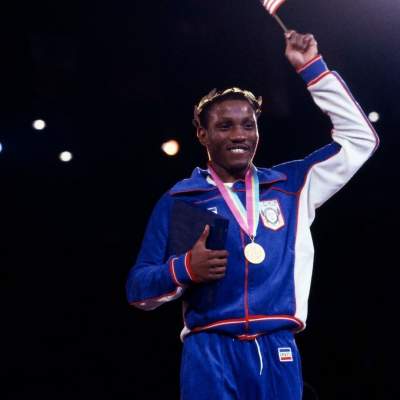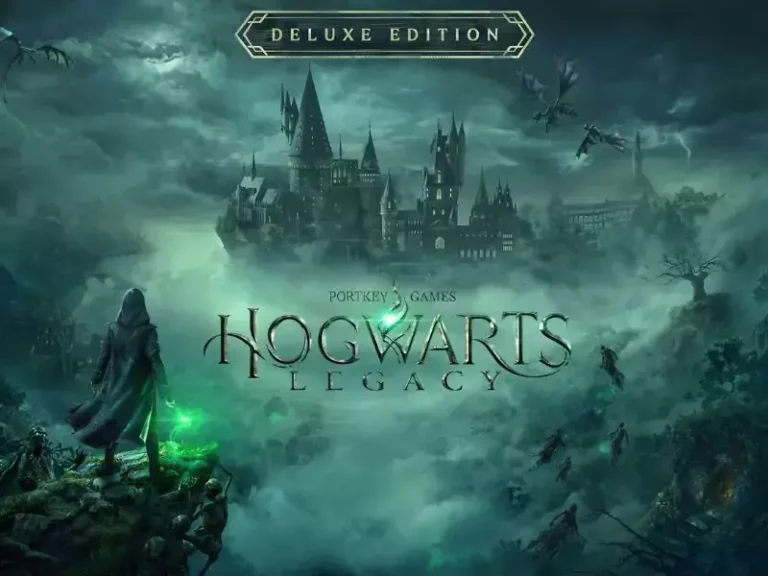
In the climactic duel between Obi-Wan Kenobi and Darth Vader, Obi-Wan makes a fateful choice that has far-reaching consequences. Instead of delivering the final blow, he spares Darth Vader’s life, raising intriguing questions about his motivations and the implications of his mercy.
This article delves into the multifaceted nature of Obi-Wan’s decision, exploring the emotional and strategic factors that influenced his actions. By unraveling the complexities of this critical moment, we gain a deeper understanding of Obi-Wan’s character and the lasting impact of his choice.
Reasons for Obi-Wan’s Decision
Obi-Wan spared Darth Vader’s life after their duel due to a combination of emotional attachment, a belief in upholding Jedi principles, and the strategic implications of killing him.
As Obi-Wan slashes Darth Vader’s helmet, revealing Anakin Skywalker’s burned face, he feels a deep sadness and guilt about what happened to his friend. However, Darth Vader insists that his fall to the Dark Side isn’t Obi-Wan’s fault, making the Jedi realize it’s pointless to appeal to Anakin’s humanity.
Despite the pain he feels, Obi-Wan still deeply cares for his former Padawan. Seeing Anakin as Darth Vader breaks his heart, as he associates Darth Vader with the Anakin he trained as a boy. Furthermore, Obi-Wan still feels responsible for what happened to Anakin and cannot bear to be the one to kill him.
From a strategic standpoint, Obi-Wan’s decision to spare Darth Vader’s life is a calculated move. Killing him would have far-reaching political implications and potential consequences. Moreover, Obi-Wan understands that Sith Lords cannot become Force Ghosts, but they can become dangerous spirits. By sparing his life, he avoids the possibility of Vader’s spirit becoming more dangerous than his physical form. Additionally, Obi-Wan’s act of mercy ensures that Anakin’s fate as a Force Ghost remains a possibility, allowing him to potentially redeem himself in the future.

Obi-Wan’s Feelings Towards Anakin
Deeply caring for his former Padawan, Obi-Wan’s heart breaks as he sees Anakin as Darth Vader, associating the Sith Lord with the young boy he once trained. The sight of Anakin’s transformation into the menacing figure of Vader fills Obi-Wan with profound sadness and regret. He cannot help but feel responsible for what happened to his friend and the role he played in his downfall. Obi-Wan’s connection to Anakin runs deep, and he still holds onto the memories of their time together as master and apprentice.
Obi-Wan’s decision to spare Darth Vader’s life is driven by his enduring affection for Anakin. Despite the darkness that now engulfs him, Obi-Wan cannot bring himself to be the one to end his former student’s life. He clings to the hope that there may still be a chance for redemption for Anakin, even though the odds seem slim.
Moreover, Obi-Wan’s adherence to the Jedi code plays a significant role in his decision. As a Jedi, his duty is to defend life, not take it. Killing Vader, even in combat, would go against his principles. By sparing his life, Obi-Wan solidifies his place as one of the greatest Jedi, demonstrating his unwavering commitment to the Jedi way.
Obi-Wan’s decision to spare Darth Vader’s life is not only a reflection of his feelings towards Anakin but also a testament to his character and unwavering belief in the power of redemption.

Importance of Obi-Wan’s Decision
The significance of Obi-Wan’s choice to spare Darth Vader’s life after their duel lies in its demonstration of unwavering commitment to Jedi principles. Obi-Wan’s decision proves that his principles remain intact, even in the face of extreme adversity. As a Jedi, Obi-Wan’s goal is to defend life, not take it. By sparing Darth Vader, he maintains his devotion to the Jedi code and refuses to kill an already defeated adversary.
Furthermore, Obi-Wan’s decision solidifies his place as one of the greatest Jedi in Star Wars. His act of mercy showcases his strength of character and showcases his ability to rise above hatred and revenge. It also highlights his deep understanding of the Force and its teachings.
Obi-Wan’s choice also has strategic implications. Killing Darth Vader would have had political implications and potential consequences. Additionally, Obi-Wan’s act of mercy could have prevented the existence of Anakin’s Force Ghost, as Sith Lords cannot become Force Ghosts but can become dangerous spirits. By sparing Darth Vader, Obi-Wan avoids these potential complications and ensures the balance of the Force.
Strategic Reasons for Vader’s Survival
One strategic reason for the survival of Darth Vader after his duel with Obi-Wan relates to the potential implications and consequences of killing him. Killing Darth Vader would have had significant political implications and potential consequences for Obi-Wan and the Rebel Alliance. As a Sith Lord and the right-hand man of Emperor Palpatine, Vader held a position of power within the Galactic Empire. His death would have served as a rallying cry for the Empire, further fueling their determination to crush the Rebel Alliance. Additionally, killing Vader might have resulted in the appointment of a new Sith apprentice by Palpatine, who would be equally if not more formidable than Vader.
Furthermore, Obi-Wan’s act of mercy in sparing Vader’s life allowed for the possibility of redeeming Anakin Skywalker. By keeping Vader alive, there was a chance that Anakin’s conscience would resurface and he would turn away from the Dark Side of the Force. This strategic decision aligned with Obi-Wan’s belief in the power of redemption and his continued hope for Anakin’s eventual return to the light.
Working Around Established Outcomes
In navigating the complexities of the Star Wars narrative, showrunners had to strategize how to work around established outcomes while exploring new and compelling ways to handle the characters, including Obi-Wan’s decision to spare Darth Vader’s life after their Kenobi duel. This decision was not only a pivotal moment in the storyline but also a strategic one.
By sparing Vader’s life, Obi-Wan ensured that Anakin’s potential as a Force Ghost could be realized. Sith Lords, like Vader, were unable to become Force Ghosts but could transform into dangerous spirits. Obi-Wan understood that killing Vader might unleash a more powerful and malevolent force upon the galaxy.
Furthermore, showrunners sought to find new and compelling ways to deal with established characters, avoiding predictable outcomes. By sparing Vader, they introduced a rich complexity to Obi-Wan’s character, showcasing his unwavering devotion to the Jedi code and his deep care for his former Padawan. This decision solidified Obi-Wan as one of the greatest Jedi in the Star Wars universe.
Working around established outcomes allows for the development of surprises within shared histories. It challenges showrunners to think creatively and find fresh approaches to familiar characters, enriching the overall narrative. By delving into the motivations behind Obi-Wan’s decision to spare Vader, showrunners successfully navigate the intricate web of the Star Wars universe while delivering a compelling and unexpected twist.
Conclusion
To summarize the reasons behind Obi-Wan’s decision to spare Darth Vader’s life after their Kenobi duel, it is evident that strategic considerations, devotion to the Jedi code, and the potential consequences of killing Vader were key factors in his conclusion.
From a strategic standpoint, Obi-Wan understood that killing Vader could have significant political implications and unforeseen consequences.
Additionally, as a Jedi, Obi-Wan remained devoted to the principles of the Jedi code, which placed a strong emphasis on defending life rather than taking it. By sparing Vader, Obi-Wan solidified his commitment to these principles and maintained his integrity as a Jedi.
Furthermore, Obi-Wan recognized the potential dangers of killing Vader, as Sith Lords were unable to become Force Ghosts but could become dangerous spirits. By allowing Vader to survive, Obi-Wan avoided the possibility of a more powerful and malevolent spirit wreaking havoc in the galaxy.
Frequently Asked Questions
What Would Have Happened if Obi-Wan Had Killed Darth Vader?
If Obi-Wan had killed Darth Vader, it would have prevented Anakin’s redemption and potential as a Force Ghost. It could have allowed Sidious to groom another apprentice and led to unforeseen consequences.
Did Obi-Wan Regret His Decision to Spare Darth Vader’s Life?
Obi-Wan’s decision to spare Darth Vader’s life after their duel was not driven by regret. It was a strategic and moral choice, rooted in his deep care for Anakin, his commitment to Jedi principles, and the potential consequences of killing him.
How Did Obi-Wan’s Decision to Spare Darth Vader Impact the Overall Story of Star Wars?
Obi-Wan’s decision to spare Darth Vader’s life impacted the overall story of Star Wars by solidifying his principles, maintaining his devotion to the Jedi code, and strategically working around established outcomes to avoid potential consequences and allow for new storytelling opportunities.
Was Obi-Wan’s Decision to Spare Darth Vader Influenced by Any External Factors?
Obi-Wan’s decision to spare Darth Vader’s life after their duel was not influenced by any external factors. It was driven by Obi-Wan’s deep care for his former Padawan, his adherence to Jedi principles, and the strategic considerations of killing a defeated adversary.
Did Obi-Wan Ever Consider the Possibility of Redeeming Darth Vader Instead of Killing Him?
Obi-Wan’s decision to spare Darth Vader’s life may have been influenced by his deep care for Anakin, his adherence to Jedi principles, and strategic considerations. He may not have considered redeeming Vader as a possibility.

Conclusion
In conclusion, Obi-Wan’s decision to spare Darth Vader’s life after their duel holds significant weight and raises intriguing questions about his motivations and the implications it carries.
By examining both the emotional and strategic factors that influenced his actions, we gain valuable insights into his character, his relationship with Anakin Skywalker, and his commitment to the Jedi code.
This pivotal moment in the Star Wars saga highlights the complexities of Obi-Wan’s character and showcases the lasting impact of his choice.



